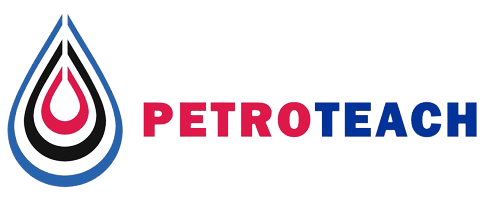DAT 609
Data Analytics Workflows for Artificial Lift, Production and Facility Engineers



| Code | Date | Location | price (€)* |
|---|---|---|---|
| DAT 609 | 12 - 13 Nov 2025 | Online | 850 |
| DAT 609 | 10 - 11 Dec 2025 | Stavanger | 1990 |
* Prices are subject to VAT and local terms. Ph.D. students, groups (≥ 3 persons) and early bird registrants (8 weeks in advance) are entitled to a DISCOUNT!
Data analysis means the process of cleaning, inspecting, transforming, and modeling data to discover new, helpful information and supporting decision-making. In this hands-on course, the participants learn data analysis and data science techniques and workflows applied to petroleum production (specifically artificial lift) while reviewing code and practicing. The main objective is to provide insight and understanding of data analytics and machine learning principles through applications. The focus is on developing data-driven models while keeping our feet closer to the underlying oil and gas production principles.
o Digital Oil field and Applications in artificial lift
o What/Why/How of Digital Oil field / Digital Transformation
o Enablers of DoF in Artificial Lift
o If AL teams generate so much data, why are we not extracting the most value?
o Managerial challenges and change management
o Basics of Data Analytics
o What is ML/ AI?
o Popular Machine Learning Algorithms
o Regression vs. Classification vs. Clustering in Supervised & Unsupervised approaches
o What to do after the coding is done? Deployment challenges
o Data workflows & Best Practices in Data Exploratory analysis
o Available data: Streaming (Real-time or time-series) vs. Static (non-streaming)
o The required data frequency
o Data cleaning practices
o Best practices on data exploratory analysis
o Rod Pump Dynamometer Card Classification
o The problem, input, and output variables definition
o Neural Network Development
o Data set
o Flow Pattern Prediction
o Problem, input, and output variables definition
o Data set
o Different ML / AI solutions
o Gas Lift Slugging
o Problem, input & output variables
o Regression Solution
o Virtual Flow Meter
o The problem, dataset – input/outputs
o Two- or three ML solutions

Dr. Rajan Chokshi works as an artificial lift and production ‘Optimizer’ for Accutant Solutions. He has over 36 years of experience working with a national oil company, research consortia, consulting and software firms, and a service company in various roles: engineer, software developer, project manager, trainer, consultant, and senior business leader.
Dr. Chokshi has worked on global projects in multiphase flow, artificial lift, production optimization, data analysis with real-time production monitoring. His current work is focused on a variety of use cases like failure prediction, virtual flow rate determination, wellhead integrity surveillance, corrosion, equipment maintenance, DTS/DAS interpretation. He has co-authored over fifteen SPE papers and holds two US patents. He has served on the SPE training and global production award committees and several technical committees for the SPE ATCE and artificial lift conferences. He has co-chaired an SPE artificial lift workshop, an SPE forum on production issues in unconventional, and an SPE multiphase flow metering workshop. He was an SPE Distinguished Lecturer twice for the 2015-2016 and 2018-2019 years.
The course is primarily intended for artificial lift, production and facilities engineers and students to enhance their knowledge base, increase technology awareness and improve the facility with different data analysis techniques applied on large data sets.
o Intermediate to Advanced
This two-days (four half-day-sessions) course discusses use cases corresponding to oil and gas wells and related production facilities. After completing the course, participants will have a set of tools and some pathways to analyze and manipulate their data in the cloud, find trends, and develop data-driven models.
After introducing the participants to data science and analytics techniques, the course discusses several business use cases that are amenable to data-driven workflows. Three (or time-permitting four) problems are presented during the training. For each, the instructor will demonstrate the solution to such a problem using a data analysis technique with Python code deployed in the Google cloud. Trainees will have the opportunity to solve a problem and tweak solution variables using a provided data set.
Registration is now OPEN!
* Prices are subject to VAT and local terms. Ph.D. students, groups (≥ 3 persons) and early bird registrants (8 weeks in advance) are entitled to a DISCOUNT!
For more details and registration please send email to: register@petro-teach.com
Would you like a PetroTeach training course delivered at a time or location to suit you?
click for request in house